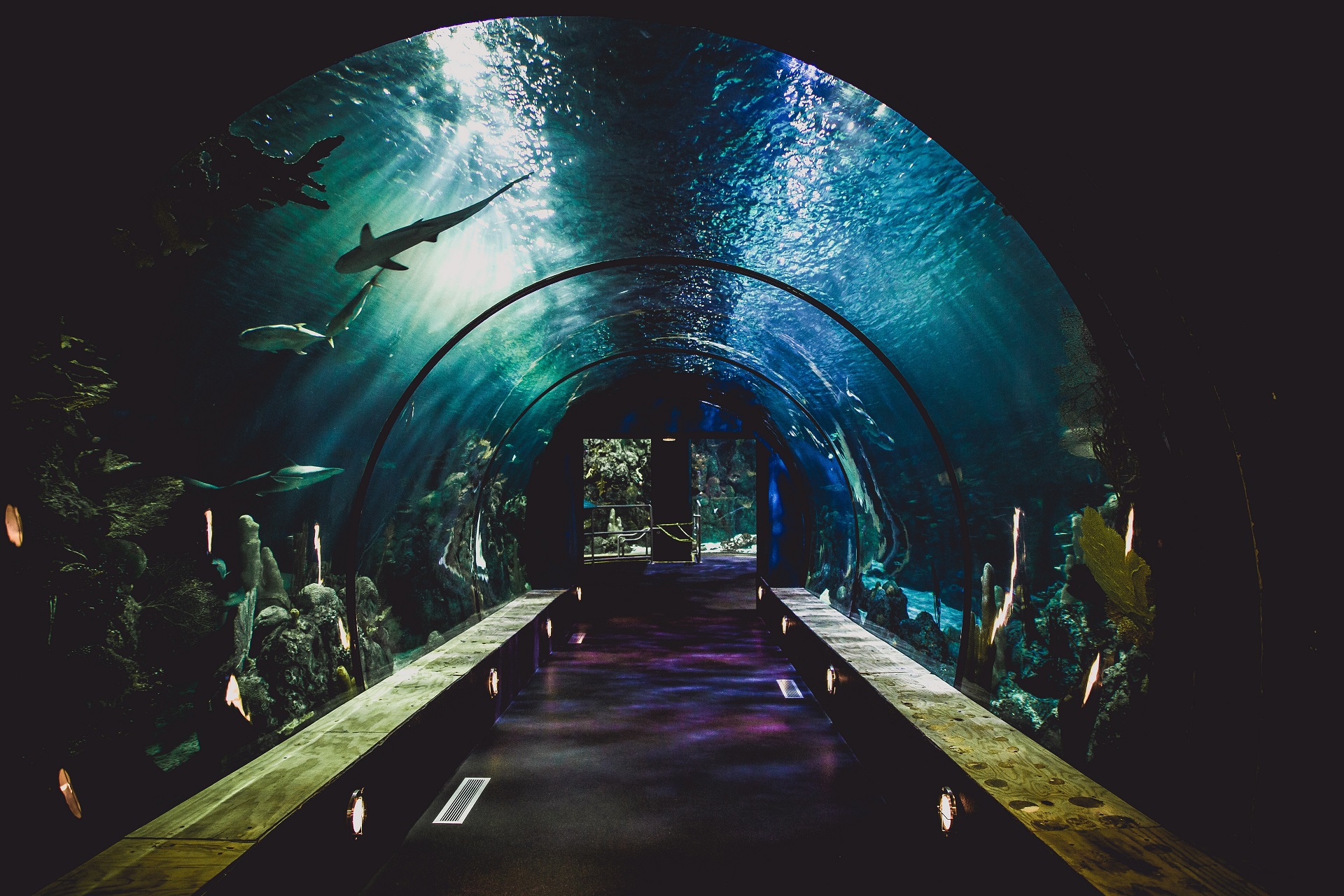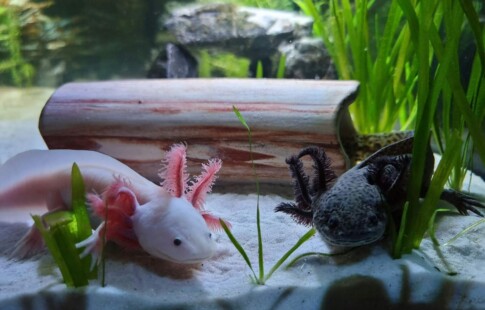
Keeping Fish in Captivity: Are Aquariums Ethical?
We are reader-supported. When you buy through links on our site, we may earn affiliate commission.
Aquariums may rekindle nostalgic memories from school field trips or remind you why you entered ocean conservation. Regardless of your association, aquariums provide humans an incredible opportunity to see a world usually hidden from regular view — what lies below the water’s surface.
For environmentalists, aquariums provide an opportunity to question how captivity affects species and ecosystems in the long term. Are aquariums ethical, or are they harming aquatic life for human entertainment?
What Does This Debate Encompass?
The most vital consideration for analyzing the ethical nature of aquariums is if fish care about being in tanks as opposed to their natural environment. Does it stunt their growth? Do they live longer because of decreased predation and easier access to food? Are the fish happy and have a greater quality of life? These queries make aquariums complicated to analyze without acknowledging grey areas since each could provide yes and no answers.
The American Humane Society asserts aquariums and zoos should primarily preserve and conserve species, particularly if they are endangered. If the institution prioritizes this mission, it could save countless species and promote advocacy in visitors. However, this initiative isn’t enough to make aquariums a sanctuary. It is all about how they execute their humane practices and analyze the welfare of the creatures.
Third-party institutions evaluate these practices to guarantee fairness in assessment. Routine inspections ensure aquariums implement changes as needed. However, the lack of inspectors in the United States alone is not enough to monitor every animal facility — especially when they can be lax with regulations to protect other interests.
Whether fish are happy or bored in aquarium tanks is one concern. The context that brought them to the tank is the factor that can separate an ethical aquarium from a display of animal trafficking. Are people taking healthy fish out of healthy environments for entertainment only, or are they saving a threatened species to learn more and help repopulate?
Both situations are occurring simultaneously, and it is unfortunately up to you to research aquariums you want to visit to ensure they use their platform and space for good. Be careful not to be confused by potential greenwashing. For example, an aquarium may use solar power, which is ideal for the planet. But, does this distract visitors from potential illegal activity in obtaining the aquarium’s residents? When in doubt, reach out to their customer support. If they give a shady answer, shy away until news outlets come out with more information.
How Do Humans Impact Aquatic Life in Aquariums?
Aquariums could help struggling species thrive, and staff could also perform needed research. They could unravel previously undiscovered secrets about aquatic behaviors. They may see how many microplastics bottom-dwelling species ingest when recovered from a natural habitat. Rehoming aquatic life to a monitored aquarium setting could save generations in the face of ocean habitat destruction. Humans could propagate species until they are at a healthy number again to stand a chance against climate crisis pressures and negative human influence.
If nets or boats harm large mammals, aquariums could be the haven they need to rehabilitate. These creatures serve as goalposts for visitors to understand humans’ implications on ocean life.
This research is not only essential for activists in the water, trying to clean up environments and spread the word about what humans can do to fix problems. It also informs environmentalists on how to prioritize legislation. Priorities shift as situations become more severe, and if a particular species or habitat requires protections, lobbyists need to know what to advocate for from local, state, and federal governments. Aquariums could provide useful data to create systemic change.
There is also the issue of animal petting, such as allowing kids to interact freely with rays and dolphins. This introduces animals to foreign bacteria and incites aggression from unwelcome contact.
In the 1980s, the Parc Océanique Cousteau in France attempted to bring aquariums’ mystical and educational nature without the live animal aspect. With puppets and virtual projects, visitors dove into the waters to explore. It was an innovation of its time, attempting to reduce humans’ interactions with aquatic animals but giving humanity the insight we crave to develop a better understanding of our underwater world.
Is Keeping Fish in an Aquarium Cruel?
Tanks could be cruel, but if maintained, they could be an ideal environment for fish to thrive since they could have:
- Filtration to remove waste
- Temperature controls to best simulate home environments
- Lids to regulate oxygen control
- Monitors for pH, ammonia, and nitrates
- Lights to provide optimal exposure
- Controlled species to ensure long life without predation
- Food diversity and quantity to ensure healthy development
Some fish have larger environments than average in an aquarium, such as clownfish, who often stay close to home. There are also non-mobile species, such as coral, could flourish in a closely monitored environment. The anti-captivity movement is strong today, especially as documentaries like “Blackfish” bring the cruelty of corporations like SeaWorld into the spotlight.
However, this oversimplifies the conversation since anti-captivity proposes all aquariums are unethical no matter what — and this isn’t true. But the aquarium must keep appropriately sized tanks depending on the number and size of the creatures — orcas, for example, could live more than twice as long outside of captivity.
Especially for endangered species and disappearing ecosystems, captivity may be the species’ only chance of survival. It is human responsibility to create as realistic and nurturing environments as possible to ensure their survival. Oceanographers can distinguish between an aquarium containing species already healthy in their natural habitat and an institution that rehabilitates or saves creatures from toxic situations.
The Moral Implications of Aquariums
If aquariums consider the whole picture, from tank size to species acquisition, it could be as close to ethical as animal rights activists could encourage. Creating sustainable aquariums requires humans to acknowledge the negative effects as well so they can be prevented.
Developments in aquarium technology could more accurately depict natural environments in the future — or robotic dolphins to save them from captivity but still educate the masses. The ethical question of aquariums will force humans to continue honing regulations and inventing modern solutions to aquatic conservation.
Share on
Like what you read? Join other Environment.co readers!
Get the latest updates on our planet by subscribing to the Environment.co newsletter!
About the author

Steve Russell
Steve is the Managing Editor of Environment.co and regularly contributes articles related to wildlife, biodiversity, and recycling. His passions include wildlife photography and bird watching.





